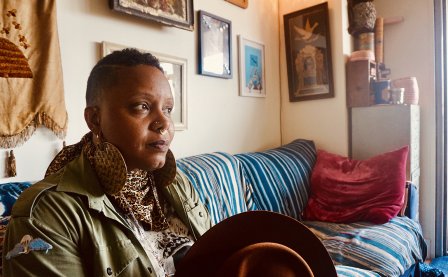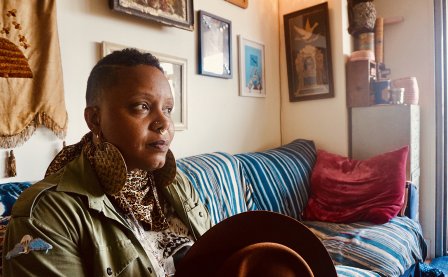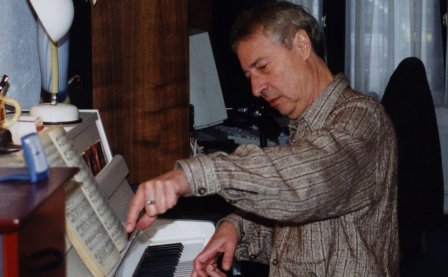“My lineage weaves throughout this entire project, it’s how I got interested in American history. Sometimes we are taught American history in such a way that you don’t see enough people who look like you in order to understand it.”
– Matana Roberts
My thoughts run:
Like many other “metamodern” critics tasked with such a weird and privileged assignment as interpreting and then evaluating another person’s truths, I often conceptualize criticism as a “conversation” between artist and reviewer. It’s a guiltless yet flawed framing system that lets me interact with a work of art without tucking my own position into a byline and then assessing a work’s merits through my own clouded ethos; in truer and more brutal terms, it lets me express my own thoughts and feelings about a piece without looking like a total fool if I’ve misinterpreted an artist’s specific context or intention. “Conversation” gives me a way in. Guiltless because (a) “conversation” assumes more than one position, therefore relieving some rhetorical pressure, and (b) unlike a debate, a conversation does not necessitate a conclusion or a winner, so my own competition-induced anxiety can be kept at bay. Flawed because (a) “conversation” implies (often egregiously incorrectly) that each position enjoys an equal footing, and (b) its presentness often belies its members’ storied pasts.
Lately, I’ve been thinking a lot about “conversation” as a form of exchange, contemplating its many modes: casual topical discussion (between those of similar positions and interests), debate (in which each position is invested in a political position), interview (literally an exchange that happens between positions that are inherently not equivalent). In each of these instances, there is an imbalance that is treated like an equality: casual conversations — though informal — can ignore or deride invested but absent positions; debates — even when civil — are necessarily settled through political appeals that ultimately favor one position (or a streamlined combination of positions); interviews — though fueled by mutual appreciation for an artist’s work — are largely structured based on an interviewer’s (or an audience’s) concerns. What kind of “conversation” can be had then when its members are not pulling from one single script? What kind of “conversation” can be had about and within reality when storytelling as a medium demonstrates that real-ly real experiences are fluid and subject-ive as well as subject to political realities? Despite its usefulness and versatility as a critical approach, then, how can a discussion with an artifact since separated from its crafter through postmodern surgery help us understand those whose voices are absent from their own stories?
“The South”
From its first mesmerizing sounds (bells, wind, birdsong, humming, meandering saxophone) pierced by these two orienting words, COIN COIN Chapter Three: river run thee, Matana Roberts’s latest record in her sweeping 12-album series on America’s expressive roots, calls into question this approach that frames criticism as a neat, balanced “conversation,” while through its specific historical context paradoxically incites a greater dialogue that transcends context on its own, both sonically and socially.
river run thee is a document of lived and living sound; it bustles and breathes and searches for breath whether or not its characters are engaged in direct “conversation” with each other (or with us), yet each narrative thread serves its purpose here in what Roberts call a “panoramic sound quilt.” How these sonic narratives are represented and woven together then is just as important as each individual story. Its weaving depicts how these stories intertwine and have intertwined in various ways throughout time. Here, American History is present in full, its untold diversity presented in intersecting layers rather than in separate vignettes. Critical deconstruction then seems just as asinine as dismantling a quilt into incomplete squares, especially when you consider that this is one made from a history of rebuilding and reconstructing a still broken nation. Of course, ignoring its compositional process would be ignoring what’s beneath these expressions and what ties them together.
river run thee is Roberts’s first entirely solo COIN COIN chapter, yet in some respects it also feels like her most layered and multifaceted. By recording live overdubs over live overdubs in real time, Roberts constructs a vast soundscape populated by fully reactive, complex voices: spiritual recollections are projected over waters pregnant with blood and tears and skin, saxophone breaths cut loose from a bastardized tradition of American jazz cry out through an entirely new range of human emotion, drones of electronically produced noise bounce off of walls and waves and planks and piano strings mapping spaces of contestation and muted cultural celebration. Where then do we (whoever that comprises) fit into this picture as listeners, however moved we are by it all? Claiming that there isn’t an intended response is presumptuous, but tapping into this quilt requires that we respect and celebrate those patches that are already there without ascribing our own agendas onto their depictions, without patching over such rare documents of marginalized voices. Our commentary can only be an addition.
As a critic and as a listener, I can’t commend enough how exquisitely Matana Roberts masters sound on river run thee; her horn sounds as idiosyncratic and expressive as ever, her foray into electroacoustic improvisation and noise is not only brave but also physiologically stunning. COIN COIN Chapter Three’s greatest triumph, however, is that it also actively challenges how we interact with art, how we view authorship in a landscape made up of recycled sound objects, and how we view an entire continent’s history from our own positions. I don’t intend on providing a critical alternative here, and providing answers isn’t what river run thee was designed for. It does, however, provide a blueprint for conceptualizing sound (in all its traditional and deviant forms) as a form of expression and for making sense of future histories as intersections of voices, many of which still suffer from a history of laryngitis. It is for all of these reasons (and those yet undiscovered) that COIN COIN Chapter Three: river run thee is infinite and indispensable in its cultural worth and true-ly timeless and comprehensive in its scope. A masterwork of human history, still in progress.
More about: Matana Roberts




